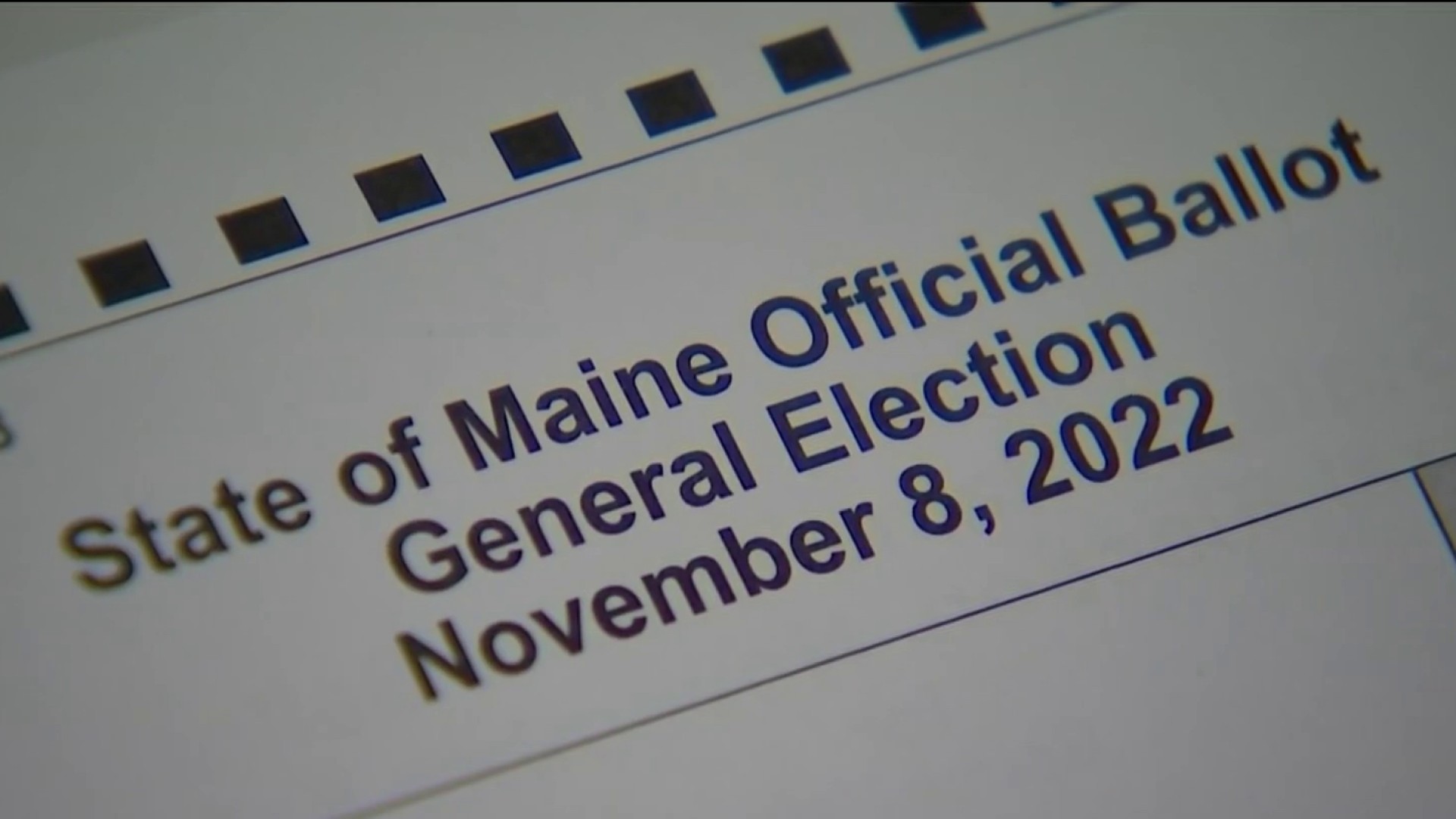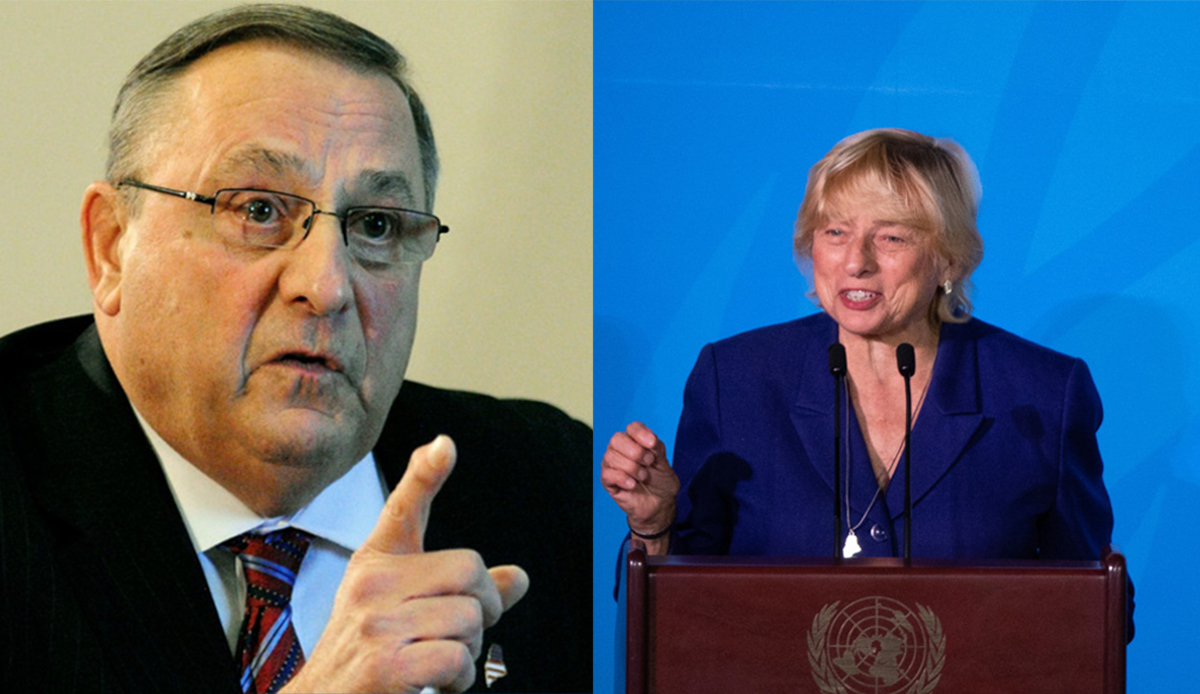On Election Day, Maine voters faced two familiar and starkly different gubernatorial candidates: the Democratic incumbent, who presents herself as pragmatic and bipartisan, and a Republican former governor whose bombast and brashness defied niceties — and sometimes generated national headlines.
During the campaign, Democratic Gov. Janet Mills promoted her stewardship through the pandemic. She boosted the state’s rainy day fund to its highest level, fully funded the state’s share of education and sent $850 relief checks to most Mainers.
Former Gov. Paul LePage has called her pandemic orders a “reign of terror,” and suggested she was “fortunate” to have benefited from federal pandemic dollars that gave her administration a boost.
Late Tuesday night, NBC News projected that the incumbent had won, with Mills 15% ahead with just over half of votes returned.
Get New England news, weather forecasts and entertainment stories to your inbox. Sign up for NECN newsletters.
Mills is a moderate former attorney general from a family prominent in public service. LePage is an unapologetic conservative who suffered abuse and was homeless as a boy before he attended college and launched a business career.
LePage stormed to office in 2010, and later described himself as a prototype for Republican President Donald Trump, in effect “Trump before Trump.” Democrats urged Mainers to reject the man who told the Portland NAACP to “kiss my butt,” compared the IRS to the Gestapo and said he’d tell then-President Barack Obama “to go to hell.”
LePage’s penchant for controversy overshadowed his conservative record of reducing welfare rolls, shrinking government, paying off hospital debt and reforming state pensions.
Mills, for her part, earned scorn from Republicans for pandemic orders that closed businesses and required vaccines for health workers. She said the measures helped the state with the nation’s oldest population weather the pandemic.
The two were no strangers.
Get updates on what's happening in New England to your inbox. Sign up for our News Headlines newsletter.
They clashed when Mills’ tenure as attorney general overlapped with LePage’s time in the Blaine House. Mills angered the governor by refusing to represent his office, forcing him to hire his own counsel.
LePage decamped for Florida after leaving office in 2019. He was prevented from seeking a third consecutive term by the Maine Constitution. But he didn’t stay away for long, and soon returned to challenge Mills.
For this race, LePage, 74, avoided the public comparisons to Trump while on the campaign trail and tried to moderate his tone.
He once declared that Trump’s election had been stolen, but acknowledged that Democrat Joe Biden was legitimately elected. He surprised abortion opponents by saying he wanted to keep Maine’s law legalizing abortion on the books, and he said he’d veto a ban on early abortions that has been adopted in some states.
He leaned into culture wars during his campaign, calling for a “bill of rights” for parents and accusing Democrats of being soft on crime. He also pressed for the elimination of Maine’s income tax.
Mills, 74, said she wanted to continue to focus on health care after expanding the state’s Medicaid rolls, and on education after boosting funding. She vowed to work to grow the economy and to ensure that women continue to have the legal right to an abortion.
A third candidate, independent Sam Hunkler, wasn’t expected to play a big role in the race, as deep-pocketed independent Eliot Cutler did in 2010 and 2014, when LePage won each election without a majority.
Maine's 2nd Congressional District Also Hotly Contested
Democrats look to hold on to a key swing district in Maine as two-term incumbent Rep. Jared Golden faces a challenge from a former congressman.
Golden, a moderate Democrat who touts guns rights and protection of rural jobs, seeks to again defeat Republican Rep. Bruce Poliquin, who held the seat from 2014 to 2018 until losing to Golden. The national Republican Party focused heavily on flipping the district, where former President Donald Trump maintains a strong base of support.
Golden must contend with both Poliquin and independent candidate Tiffany Bond. The race includes ranked-choice voting, which Golden needed to defeat Poliquin last time.
Golden made a pitch to independent-minded Maine voters during the campaign.
“I think it’s generally understood that I’ve been an independent voice,” Golden said. “I’ve been open about that and communicated it.”
Poliquin attempted to portray Golden as too liberal for the district, and focused his campaign on issues including immigration reform and curtailing government spending. He also pointed to his cooperation with Trump when he served in Congress, and to the need to curb inflation.
“If we do not make changes in Washington, all of what we are living through right now continues,” Poliquin said. “Spending and inflation continues. Energy prices will continue to soar. Taxes will go up, crime will continue to soar.”
The 2nd District is one of two in Maine and includes the state’s second- and third-largest cities — Lewiston and Bangor. It is mostly made up of vast rural areas in northern and western Maine and the state’s Down East coastline, and is home to Maine’s traditional industries such as lobster fishing, logging, and potato and blueberry farming. It is politically mixed and geographically vast.
The district handed an electoral vote to Trump in 2016 and 2020. Trump performed even better there in 2020 than in his first election, but Golden held on to the seat that year. The electoral vote was the only one Trump won in New England in either election.
Golden is a Marine Corps veteran who has occasionally bucked Democratic leadership on major issues, including President Joe Biden’s student loan forgiveness plan, which he has opposed. Poliquin is a former investment manager and served two years as Maine’s state treasurer.
Democratic Rep. Chellie Pingree, who represents Maine’s geographically smaller and much more liberal 1st Congressional District, was projected to win reelection over Republican Ed Thelander, according to NBC News. Her district is based around Portland, the state’s largest city.



